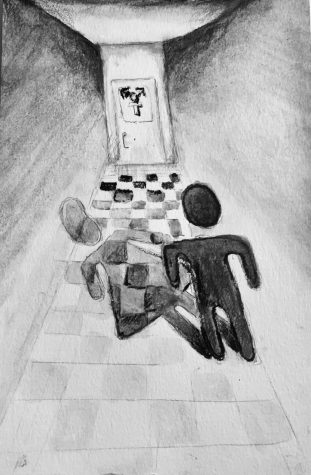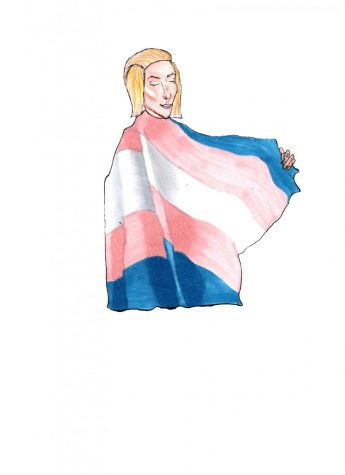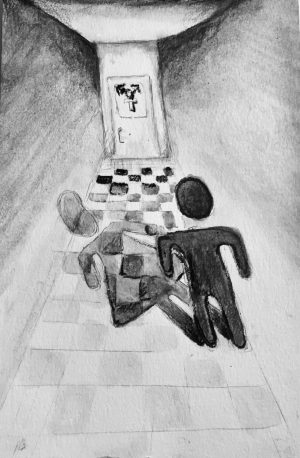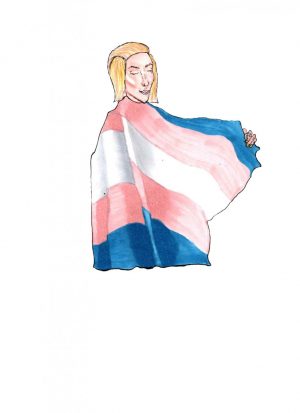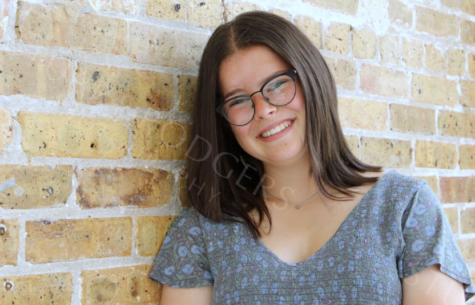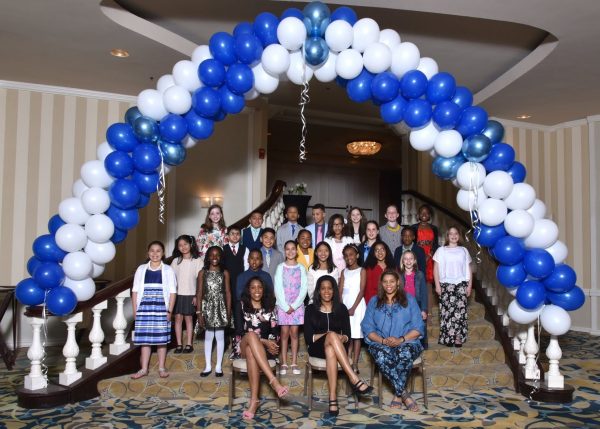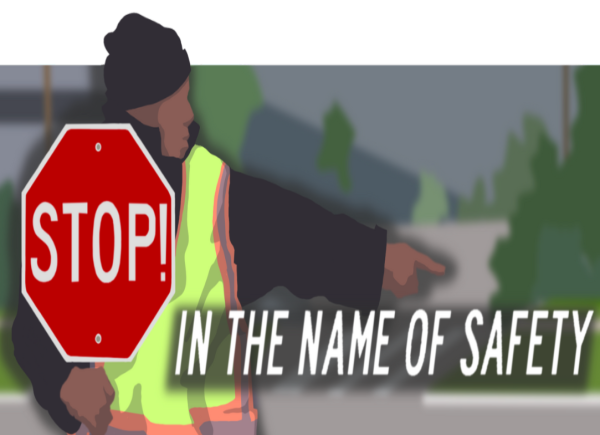What gender means to me
An anthology of intersectional interactions with gender
March 22, 2021
Introduction
Gender is one of the most complex and historically influential constructs in society today; the cultural, legal and social expectations of gender have persisted for centuries; each experience and influence by the gender binary is unique to the individual. Gender identity is defined by The World Health Organization as ‘a person’s deeply felt, internal and individual experience of gender, which may or may not correspond to the person’s physiology or designated sex at birth.” Looking at gender through a broader, more societal lens, Planned Parenthood explains that, “Each culture has standards about the way that people should behave based on their gender. This is also generally male or female. But instead of being about body parts, it’s more about how you’re expected to act, because of your sex.” With an entity that is so personal, deeply felt and has countless intersections with other identities one may hold, we, as journalists, allowed our peers and community members to describe how their own interactions with their gender and their gender identity have influenced their experiences as Evanstonians.
This story describes how the complexities and nuances of gender have shown up in some of the members of the Evanston and ETHS communities. Again, these are a few of the countless accounts of how gender has shown up in the lives of people in the Evanston and ETHS communities.
Corey Winchester, he/him, history teacher
Corey Winchester remembers his childhood and family fondly, yet looking back can pick out moments where the gender binary asserted its presence, such as growing up with strict assumptions about gender and the implications of it.
“I saw people like RuPaul when I was a kid and was like, ‘Well, that’s a man that dressed in women’s clothing,’ and that was kind of the extent, right. There was a stigma around it. I remember being a kid and wanting to wear my Granny’s heels. I remember my mom. My granny got upset because my kindergarten teacher said that maybe you should make sure that Corey plays football because I was soft,” Winchester explains. “But I mean, I also grew up where gender was very traditional binary.”
Winchester explains how it was teaching and education that allowed him to explore the intricacies of the gender binary and how to dismantle it.
“I didn’t know that there was anything outside of the gender binary until maybe I got to college and even started teaching.”
Teaching allowed Winchester to investigate ways he upheld the gender binary in his teaching as a history and sociology teacher. Specifically, Winchester recalls a former student that interrogated ways the gender binary exists in our school community and education as a whole.
“I think that’s kind of the beauty of being queer. There’s a lot of rhetoric where people say, ‘Well, no, it’s not a choice.’ I think that is true. And also at the same time, for a lot of folks, it is a choice. And it’s okay that it is because, at the end of the day, you should be able to be wherever you want to be.”
Winchester goes on to explain the power that queerness holds for many.
“It is a choice to express and to be who you are. And also, it’s something that you are at the same time. So it’s a state of being, and it’s also a state of doing.”
Additionally, Winchester explains that in many respects, a push to expand our language and understanding of queerness and the gender binary is a rejection of white supremacy and western ideas.
“And then the other thing that she said that I thought was important was that a lot of the ways that folks of color have learned to understand gender have been informed by white supremacy, but we haven’t had conversations around that.”
Those labels, Winchester argues, were founded not with the goal of humanizing, but rather on what western mentalities have said male or female bodies should be capable of doing. The same is true of constructs relating to race.
“The identities that we’ve labeled that stem from white supremacy are the identities about what we associate with what our bodies are capable of doing. So, if we think about it in a Western construct with gender, it’s about what male-looking bodies can do, what a female-looking body’s ability [is], what a Black body can do, what a white body can do.
“But in and of itself, if you think about gender as a segue of expression, and it is for me at least, it’s something that shouldn’t have to be toxic. I think we have to reposition and reimagine what masculinity and maleness can be.”
Trinity Collins
Trinity Collins, ETHS alum, and current Northwestern student grew up going to a parochial school. Collins speaks to the complexities of attending a parochial school, which, similarly to religion, often clings to a binary understanding of gender.
“I went to a private Catholic school and was extremely conservative, and had very clear understandings of gender and how a woman should be an act. For example, I learned to act as someone who is supposed to listen to men and look to them for certain things.”
However, Collins describes how their experiences at ETHS allowed them to meet people who identify outside of the gender binary and are reckoning with what it means to live in such a binary world.
“As I got to ETHS, and as high school started, I started interacting with different folks. I met folks who identified outside of the binary [or were] gender non-conforming, and that, for me, really opened up the possibility to be something else.”
Collins describes how exhausting and performative it feels to pretend to be someone you are not with the goal of fitting into societal binaries.
“It was just like I was too tired to perform anymore. I was just too tired to get up every morning and do all the things I was supposed to do like perform as a woman and do the work of gender.
Collins also describes gender as being projected onto them so frequently that they acknowledge it, but feel it exists separately from their humanity.
“I don’t connect with gender in almost any way. I acknowledge its existence and the fact that it’s often projected onto me. I think at this point in my life, I’ve internalized so much propaganda that in some ways I resonate with gender because I was raised on it.”
Collins also speaks to imagining more liberating spaces for queer folks in Evanston.
“In these moments, I see myself, I see them, I see the potential for another world. But, with that said, I have no interest in allowing ETHS or Evanston to claim those spaces as their own when they are so colonial and violent.”
Bill Farmer, he/him, freshman biology teacher
Bill Farmer, a freshman biology teacher, GSA sponsor, and member of the LGBTQ+ describes the ways he has learned from students about himself and our school.
“I teach biology, and I actually also run a summer school for ETHS and I’ve been the sponsor for the GSA [Gender and Sexuality Alliance] Club for 15 years now,” Farmer explains.
Farmer also works closely with many LGBTQ+ equity organizations outside of ETHS. Farmer explains how those organizations play a role in both his identity and life, as well as how the work that he does outside of school impacts his classroom culture.
“I’m very involved with The Human Rights Campaign, which also partners with other organizations [and works] around embedding LGBTQ+ inclusive curriculum. They are one of the key organizations, and they work with other groups. Part of it is that for me, who identifies as a gay cisgender male, some of these issues of inclusivity are based on my own experience having visibility. The way I see some intersectionality is that with adults, I want adults who identify as LGBTQ+ to be open and feel comfortable in their workplace so that students have adult role models who are trans or non-binary or bisexual because I think that’s an important component in creating a safe space. Whether you’re an adult or you’re a student, you should feel comfortable being yourself in this environment,” Farmer says.
Having taught at ETHS for many years, Farmer also touches on the culture of ETHS and the more recent LGBTQ+ equity push.
“I’ve been working at ETHS since 2003. At that point in time, there were more instances of blatant homophobia. There would even be teachers who openly said [queerness] was wrong, or in wellness classes the situation was sometimes hostile or very negative towards members of the LGBTQ+ community. We’ve moved a long way from that and we’ve built a culture. Staff has been trained over the years to understand issues related to LGBTQ+ students and faculty, so that’s improved. I think there’s still work to do,” Farmer explains.
“The wellness teachers here now have been really great about wanting to learn more about how they can do better within the wellness curriculum. I think the one issue that I’ve seen is that, when we talk about these types of issues, it tends to be an isolated lesson where there is one day to talk about these things, but it really should be something that is seamlessly embedded throughout the year. So, when we’re talking about healthy relationships, include examples of same-sex couples. Let’s make sure we’re not just talking about gay issues when we’re on the ‘gay unit.’ I think with history too, there’s going to be some growth. I know there are some teachers who have started to look at how they can weave it in so that it’s not just a snapshot where we talk about it for one day or a week. We’re always talking about issues of race and issues of sexism, so let’s talk about issues of LGBTQ+ identities and how that interplays with almost every subject. Even if you’re making problems in a math class, you don’t always want word problems that reinforce heteronormativity. You want to try and get people to stop using phrases like, ‘you guys,’ or ‘ladies and gentlemen.’ You want to try and build consciousness and awareness of how day-to-day language can be more inclusive and avoid things that could cause harm to other students because they don’t see themselves or their identity being respected.”
In regards to where ETHS can improve, Farmer believes the answers lie in diverse perspectives and training for staff, among other things.
I think it’s just about embedding it more and having it be more talked about. Especially in English or history classes, where it’s a little easier, just to make sure we’re reading different texts from different perspectives. And, then, I do think it’s been a while since we’ve had a training for adults, so having adults go through updated training to be aware of sensitivity and bias. Those are all things we have to continue to do, and figure out ways to educate students about those life lessons and how those get worked into classes.
Halka, they/them, Exhibits and Creative Programs Library Assistant at Evanston Public Library
One community organizer and librarian at the Evanston Public Library, M. Halka, collaborates with Evanston youth to provide resources about gender identity.
“In a more nuanced way, I interact with the world from lots of intersections of privilege and oppression, like everybody. There are ways I feel I’ve been able to build partnerships and build wonderful connections.”
Halka also centralizes creativity and expressive self-exploration in their community organizing.
“Right now, most of my role is coordinating with community artists, focusing primarily on emerging artists of color to work in our collection.”
Additionally, Halka has been planning Evanston Public Library’s virtual Trans Day of Visibility event, which is set to take place on March 31, 2020. International Trans Day of Visibility is an annual holiday designed to celebrate the strength, accomplishments, and resilience of the trans/GNC community. The holiday was founded in 2009.
This year, the Evanston Public Library event is designed to center trans/GNC POC in their celebration. To register, visit the library’s website.
Conclusion
While these are only the stories and experiences of a few individuals, we [Nora and Eden] want to acknowledge that the way people experience gender and the gender binary is incredibly expansive. This story was a way for us to reckon with both the way we see folks in our communities questioning gender as well as actively pushing against historic perceptions of gender. There are many ways to understand the intersections of gender and other aspects of identity, and we welcome you to consider these questions with us.


